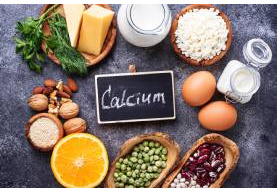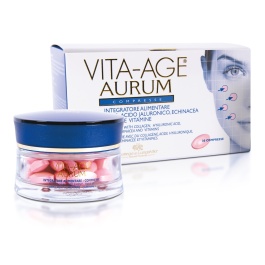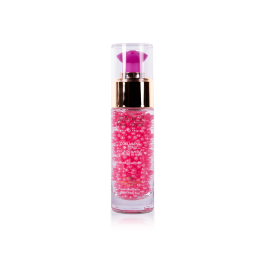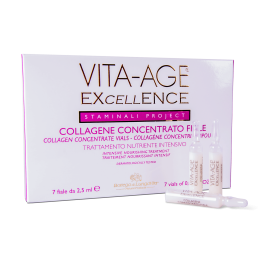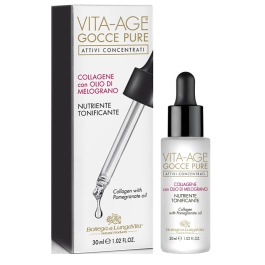COLLAGEN: WHAT IT IS, WHAT IT'S FOR, WHICH PRODUCT TO CHOOSE, AND HOW TO USE IT.

Table of Contents
What is collagen? We hear a lot about it, but not everyone knows that it's a protein naturally produced by the human body, which helps maintain the elasticity of skin, hair, muscles, ligaments, and bones. Collagen production gradually decreases as we age, resulting in the appearance of signs of aging on the skin (primarily wrinkles) and increased bone and joint fragility
How many types of collagen are there?
Scientists have identified 28 types of collagen, although the most common in the human body—and also the most important for health—are types I, II, and III.
- Type I collagen represents almost 90% of the collagen in our body and plays a fundamental role: ensuring the strength of connective tissues. It is present in significant quantities in the skin, bones, tendons, and cartilage, and a deficiency can lead to the development of conditions such as arthritis, osteoarthritis, and osteoporosis, as well as the rapid loss of skin elasticity and firmness.
- Type II collagen is mainly found in cartilage, promoting resistance to friction and traction.
- Type III collagen, although found in smaller quantities in the human body, is essential for promoting blood clotting and platelet aggregation.
Collagen Benefits
Collagen directly contributes to the health of skin, bones, and joints. It supports skin elasticity, combats the formation of wrinkles and signs of aging, and promotes a firmer, more hydrated appearance. At the same time, it strengthens cartilage, tendons, and connective tissue, reducing the sensation of joint stiffness and supporting muscle health. Hair and nails can also benefit from collagen supplementation, appearing stronger and more resilient.
Differences between collagen sources
Collagen supplements can be of various origins: bovine, marine, or plant-based (the latter products stimulate endogenous production, as collagen is an exclusively animal protein). Marine collagen, extracted from fish and shellfish, is often preferred for its high affinity with human collagen and its effectiveness in keeping skin elastic and hydrated. Bovine collagen, on the other hand, is more suitable for supporting bones and joints.
Can collagen be taken with other active ingredients?
Yes, and it's precisely its synergy with other substances that makes it particularly effective. Vitamin C, for example, is essential for collagen synthesis; hyaluronic acid enhances its hydrating and anti-aging properties; glucosamine contributes to joint health. Therefore, to the question of whether collagen or hyaluronic acid is better for wrinkles, the answer is that rather than choosing just one of the two, it's advisable to integrate them together to achieve comprehensive benefits for both skin and joints.
The best collagen supplements: how to choose them
To effectively supplement collagen, it's important to choose quality products formulated to support the skin and tissues from the inside and out. Bottega di LungaVita offers several targeted solutions:
- Collagen and Hyaluronic Acid Dietary Supplement: In tablet form, it helps stimulate the formation of new collagen and has an antioxidant effect, helping to maintain skin tone and elasticity.
- Collagen Pearls: A smoothing and nourishing facial treatment with an immediate tightening and anti-aging effect, ideal for combating the signs of aging, even in more mature skin.
- Collagen Excellence: A liquid supplement enriched with vitamins, minerals, and resveratrol, which helps reduce wrinkles and strengthen skin, nails, and hair.
- Collagen Concentrate in Vials: An intensive treatment based on soluble collagen, stem cells, and resveratrol, designed to plump and improve skin tone.
- Collagen with Pomegranate Oil: A concentrated active ingredient with a light texture, combining the plumping action of collagen with the nourishing and regenerating effects of pomegranate oil.
Regarding how to supplement with collagen and how much to take per day, it's always advisable to consult the instructions on the product packaging.
The main FAQs about collagen
- Does collagen make you gain weight?
No, because it contains no sugar or fat. - Can you take it if you're young?
Yes, starting at age 25, when natural collagen production begins to decline. - Is it suitable for men too?
Of course: collagen intake helps strengthen bones and joints and keeps skin young and elastic. - Can it be taken in combination with other supplements?
Yes, for example, in combination with hyaluronic acid-based products.








